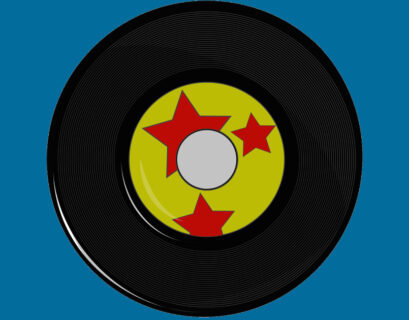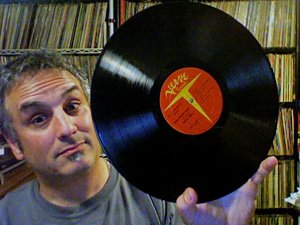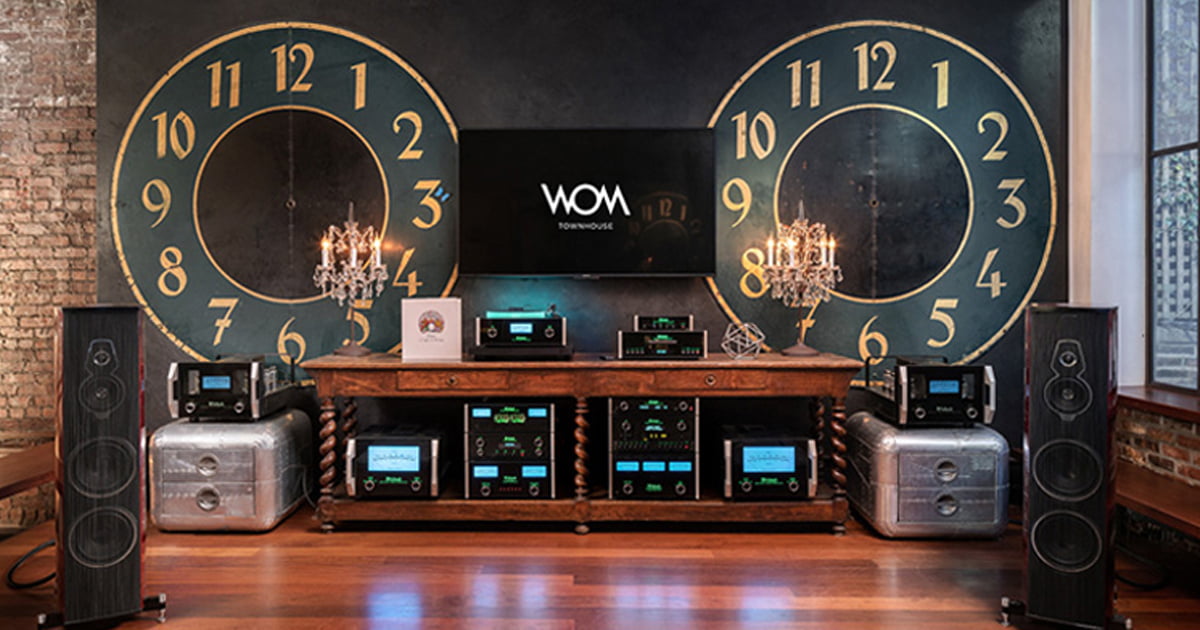It’s the time of year for saving money!
By Mark Smotroff
The three albums I’m highlighting here have nothing much in common other than they are fine collections of vintage — mid-century — jazz and that finding original pressings can be quite difficult and pricey, especially in good condition. All have been recently reissued and the results are happily quite excellent.
Harold Land Quintet’s The Peacemaker – I first reviewed this rare 1968 album in late 2023 when it was included in the excellent Vinyl Me Please boxed set titled The Story Of Cadet Records (click here to jump to that review). While that AAA all analog remastered edition of the album is outstanding — one of my favorites from the boxed set, in fact — the reality is that many people won’t / don’t / can’t buy a pricey multi-disc boxed set just to get this one LP, even if it is by the great and under-appreciated jazz saxophonist Harold Land.
Thankfully, Universal Music, through its affiliation with Third Man Records has issued a respectable, more affordable version of the album for anyone who either doesn’t want to spend the $300-plus dollars for the big boxed set or a rare original — the one copy available on Discogs at the time of this writing is asking $400 in just “G+” condition!
While I would guess that the sources for this Third Man edition were digital, the overall sound on this pressing of The Peacemaker is happily quite nice. They generally got this one right. Its no doubt not as warm as the VMP edition but the 180-gram pressing is quiet and well centered. The music presented sounds a bit brighter overall than the all-analog edition, but it is still very enjoyable — there were no super harsh, uncomfortable digital edges jumping out at me. The album was mastered for vinyl by Ryan Smith of Sterling in New York (the VMP edition was done by Bernie Grundman at Bernie Grundman Mastering in Los Angeles).
Either way you listen, the music on The Peacemaker is wonderful (again, do check my other review for more detail on it). For about $30 on Amazon (click here), this Third Man edition feels like a good deal.
Dave Brubeck Quartet, Jazz At Oberlin — A kind of curious series of coincidences have happened to me in recent years in the record collecting universe. I’ll suddenly out of the blue get my hands on a clean original copy of a rare/elusive album after years of searching only to find it reissued within a matter of months. Such is the case with The Dave Brubeck Quartet’s 1953 release Jazz At Oberlin. This early live recording was very popular so finding clean originals is the challenge — many well-loved copies can easily be found on the collector’s / used marketplace.
It is not a super valuable album but that doesn’t make it any less good. The music is great and the band is swinging. This is the early Dave Brubeck/Paul Desmond partnership in full flower, years before the majestic peak of 1959’s smash hit Time Out.
Thankfully now you can find a pristine new edition released by Craft Recordings as part of its esteemed Original Jazz Classics series. Featuring all-analog mastering by Kevin Gray of Cohearant Audio, the sound quality and pressing quality — at the respected RTI facilities — are top notch.
It compares favorably with my original, although I can hear the age of the 70 year old tapes compared to my 1955-era pressing which captures the music (when the tapes were still fresh).
My only nit to pick really is that the label printing quality is not up to the usual standards of the OJC series, making the type borderline illegible as compared to the original editions. Hopefully it was a relatively small batch that had this issue.
Nonetheless, the OJC series issue of Jazz At Oberlin still presents a good value to the consumer so the $38 it costs on Amazon (click here) is a small price of admission if you love Dave Brubeck’s music.
Ron Carter’s Where? (with Mal Waldron & Eric Dolphy) – This is an especially curious release as, like the aforementioned Harold Land album, Ron Carter’s 1962 release is one I had never seen anywhere until December of 2023 when I came across a questionable looking copy in the bargain bin at Amoeba Music. For $5, I took a chance and it turned out to be a decent player, a 1964 reissue on Status Records, a budget subsidiary of Prestige Records.
So imagine my surprise when about a month later I received a press release announcing a reissue of Ron Carter’s Where? as part of Craft Recordings’ Original Jazz Classic’s series.
Go figure!
Now the curious thing about my Status Records edition of Ron Carter’s Where? is that it bears the imprint of legendary recording and mastering engineer Rudy Van Gelder in the deadwax of the LP (not bad for a budget label release!). While that pressing is far from ideal, it does present a rounder, somewhat fuller bass sound relatively compared to the new edition. This makes me wonder about a couple of details…
Firstly, I remember reading a comment from Charles Mingus who stopped working with Van Gelder as he felt the engineer didn’t know how — or didn’t want — to capture his bass sound properly.
Keeping that in mind, I am surprised how light the bass actually sounds on this album which is presented in Stereo here. There are two bassists on this album: Ron Carter and George Duvivier. My Status Records copy is Mono.
There is knowledge circulating that Van Gelder apparently stopped making dual Mono and Stereo recordings sometime during or immediately after 1958 when the two-channel format was launched to the public in the form of stereophonic vinyl records and updated playback equipment. Van Gelder’s Mono mixes from that point on were so-called “fold downs” reportedly (as opposed to dedicated monaural mixes).
This makes sense at times but at other points, less so. This is one of them.
When the instrumentation switches between Bass and Cello, there are moments where those sounds seem to disappear entirely. Overall, compared to my 1964-era Status Records reissue — which bears the Van Gelder stamp in the deadwax indicating he cut the lacquers (aka disc mastering) used for pressing the LPs — the bass presence is very subtle and ultimately a bit on the thin side. That isn’t to say its bad and especially when you turn up the volume on your amp you can certainly hear the instruments clearly.
But the Mono mix is punchier and rounder, for whatever reasons that may have contributed to it including (speculating here) additional equalization in the disc mastering process. We may never know.
The new Craft Recordings OJC edition of Ron Carter’s Where? certainly sounds clean and crisp — especially the high end, where the cymbal work of drummer Charlie Persip shines. The album is pressed on high quality dark black and well centered 180-gram vinyl manufactured at RTI which arrives housed in an audiophile-grade plastic lined inner sleeve.
Given the scarcity of the original release, I would certainly recommend picking this up as it is a lovingly prepared package, recreating the original New Jazz labels and — even more notably — printing the album art on lovely linen-finish textured thick cardboard stock. It is very classy. As I’ve never seen an original, I don’t know if they were in fact textured like this, but for the reissue it is certainly a very nice production touch.
For about $38, this new edition of Ron Carter’s Where? seems like a smart one to get if you are fans of not only Carter but also the co-headliners here, Eric Dolphy and Mal Waldron. Hard to go wrong here…
[Mark Smotroff has been reviewing music at AudiophileReview for many years but can also be found at AnalogPlanet.com. In the past he has written for Sound & Vision, DISCoveries, EQ, Mix and many more. An avid vinyl collector and music enthusiast who has also worked in marketing communications for decades you can learn more about his background at LinkedIn.]





















